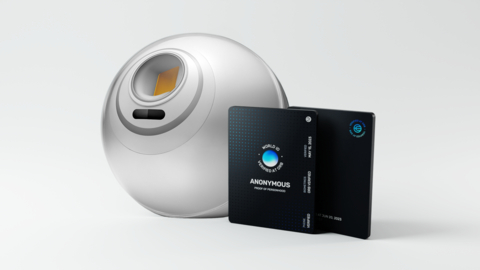In a move that brings AI and crypto closer than ever before, Sam Altman’s ambitious cryptocurrency project – Worldcoin – has taken off. The revolutionary crypto project rolled out worldwide on Monday in order to create a reliable solution for “distinguishing humans from AI online,” enable “global democratic processes,” as well as “drastically increase economic opportunity.” The Worldcoin Foundation has officially moved the Worldcoin project to the OP Mainnet.
Worldcoin aims to provide a complete global financial platform, enable universal access to cryptocurrency, as well as redraw the lines between humans and artificial intelligence – lines that were built when Altman’s OpenAI rolled out its now-viral AI chatbot ChatGPT. In turn, the reveal of ChatGPT served as the herald for an onslaught of advancements, developments, and investments in the AI sector, raising alarms and making it harder to tell whether something was made by humans or an AI algorithm.
Already, Worldcoin – the token of the crypto project – has proved to be an instant hit. Once major crypto exchanges like Binance listed Worldcoin, around $145 million worth of the token had already been traded. San Francisco and Berlin-based Tools for Humanity is the company behind Worldcoin, and CEO Alex Blania has worked with Altman to roll out the crypto project. Prior to its launch, it already had 2 million users from its beta period, and with the global launch on Monday, Worldcoin is scaling up “orbing” operations to 35 cities in 20 countries. Those who sign up in certain countries will receive the Worldcoin cryptocurrency token, which goes by the ticker WLD. Its price rose in early trading on Monday. The only caveat is that means people in the US will not be able to buy, sell, or trade Worldcoin, since regulatory issues have halted Worldcoin from trading in the country.
143 million Worldcoins were released on Monday on the official global launch, out of which 100 million had been given to market makers as a loan. The rest were distributed to investors who had verified their identity using the Orb technology prior to the official launch, and for the first 15 years, Worldcoin is capping the total supply to 10 billion “WLD” tokens.
Then again, what is so revolutionary about Worldcoin is the tech that is claimed to verify the identities of users – the Orb, a silver ball that is around the size of a bowling ball. Altman says that user identities will be verified by a biometric scan (in this case, an eye-scan). Once the orb’s iris scan verifies the person – once they have signed up – is a real human, it creates a World ID. This tech has the potential to be invaluable, especially at a time when the likes of ChatGPT are able to mimic human-like conversations and language.
“The Orbs are a piece of technology that was designed and produced by Tools for Humanity,” Tiago Sada, head of product, engineering and design at Tools for Humanity, commented on the matter. “It has been open-sourced not just for transparency but also to make it easy for others to make Orbs that are supported by the protocol.” As of now, one can buy Worldcoin Orbs in Berlin, Dubai, London, Mexico City, Miami, New York City, San Francisco, Seoul, and Tokyo, and while their number is still low for now – around 2000 – Tools for Humanity aims to increase that number to 1,500 Orbs around the world by the end of the year.
Coming back to the World ID, it is being touted as a “digital passport” which further authenticates the user as a real human and not an AI bot, and Blania informs that they can be stored in a way that preserves privacy and cannot be controlled or shut down by any single entity. The World ID Software Development Kit (SDK) comes with support for the creation of web and mobile applications using the Worldcoin protocol, and is now available to all developers. With the cryptocurrency and the app, users can users seamlessly make payments, purchase and transfers with it, as well as other digital assets.
“Worldcoin consists of a privacy-preserving digital identity (World ID) and, where laws allow, a digital currency (WLD) received simply for being human. We hope that, where the rules are less clear, such as in the U.S., steps will be taken so more people can benefit from both,” Blania and Altman wrote, adding that the World App – described as the “protocol-compatible wallet” – is now available for download in over 120 countries. “Worldcoin is an attempt at global scale alignment, the journey will be challenging and the outcome is uncertain. But finding new ways to broadly share the coming technological prosperity is a critical challenge of our time. We hope you’ll join us,” they added.
The Tech Portal is published by Blue Box Media Private Limited. Our investors have no influence over our reporting. Read our full Ownership and Funding Disclosure →






